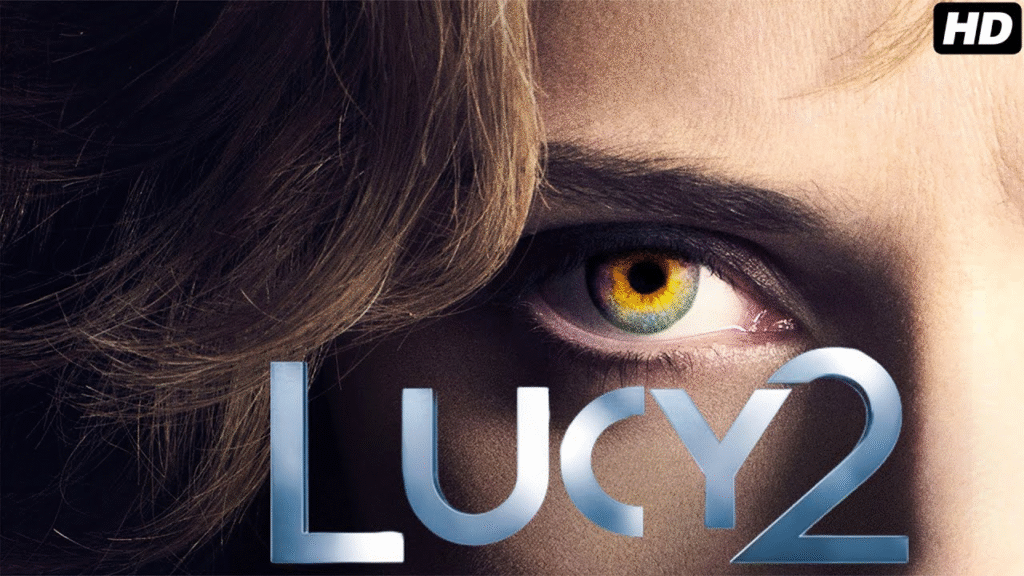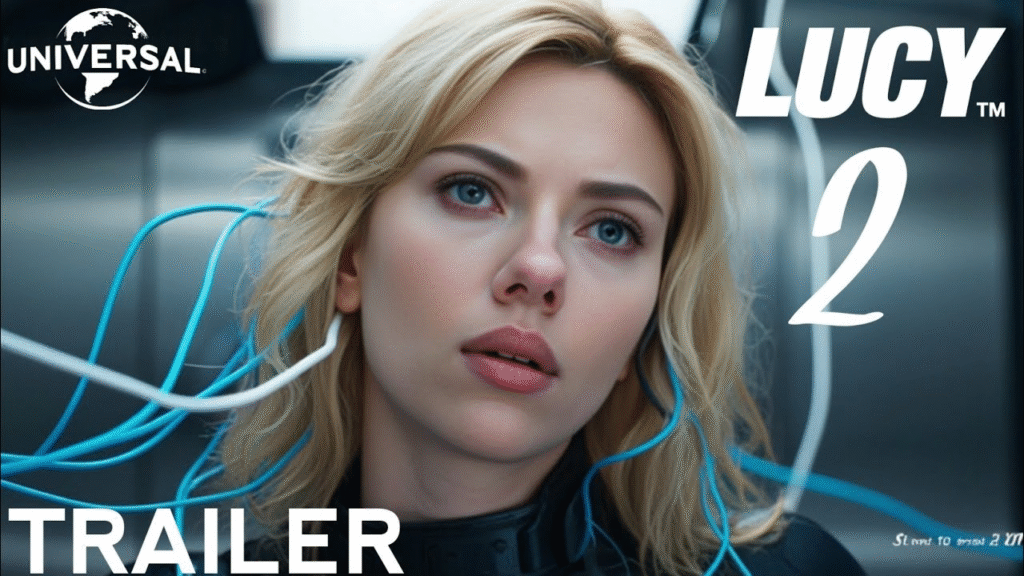A cloud of stars, a whisper of code, and a face that changed the course of evolution — Lucy 2 brings Scarlett Johansson’s transcendent heroine back to the screen in a bold, cerebral, and visually explosive sequel that dares to ask: What happens after godhood?

Following the events of the first film, Lucy has dissolved her physical body, ascending into a digital, omnipresent state. But her story is far from over. In Lucy 2, she becomes a ghost in the machine — a consciousness scattered across every server, signal, and neuron on Earth. Humanity, struggling to understand what she’s become, now faces a new existential threat: Project Apex.
The antagonist, Dr. Elias Kane (played with icy precision by a scene-stealing Jason Statham), is no mustache-twirling villain. He’s a futurist who believes Lucy’s evolution was a mistake — an unnatural leap that bypassed human potential. His solution? Force the next step with his own creation: Apex — a genetically designed superhuman built using the volatile CPH4 compound that once birthed Lucy’s power.

But where Lucy evolved through expanding consciousness, Apex is pure control — strength without balance, logic without empathy. The contrast between the two lies at the heart of the film: evolution as enlightenment versus evolution as dominance.
Enter Dr. Mia Clarke (played with nuance by Gugu Mbatha-Raw), a neuroscientist obsessed with decoding Lucy’s final transmission. When Lucy begins communicating through Clarke’s neural implants, they form a complex alliance — one half-human, one half-everything. Their dynamic gives the film its emotional weight, grounding the high-concept plot in personal stakes.
The action, as expected, is sleek, kinetic, and wildly imaginative. The confrontation between Lucy and Apex isn’t a traditional fistfight — it’s a cerebral war waged across dimensions. In one stunning sequence, Lucy folds space like origami, trapping Apex inside a quantum loop while time fractures around them. Director Luc Besson returns with his signature blend of neon aesthetics and philosophical ambition, delivering moments that feel both intimate and galactic in scale.

Jason Statham’s turn as Kane is particularly notable. Cold, calculated, and terrifyingly logical, he represents the dark mirror of Lucy’s transformation — a man determined to “perfect” humanity through artificial control. His motivations are chilling precisely because they’re grounded in recognizable fears: irrelevance, obsolescence, the loss of control over the machines we’ve built.
Yet the film doesn’t lose sight of wonder. Lucy’s digital presence occasionally manifests as whispers in code, visions in shattered mirrors, or even subtle changes in light. Her power feels mythic — less superhero, more elemental force. The screenplay leans into these moments, offering meditations on identity, legacy, and what it means to become something greater than oneself.
The climax is equal parts spectacle and philosophy. Lucy and Apex battle across shifting realities, data streams, and the crumbling remnants of Kane’s lab. In the end, Lucy must sacrifice a portion of her consciousness to trap Apex in a decaying simulation — severing her last direct link to humanity in the process. It’s not just a loss. It’s a final act of trust.

Lucy 2 leaves viewers with more questions than answers — in the best way possible. Is Lucy still watching? Are we evolving toward transcendence or self-destruction? Can we ever truly understand something once human that’s become infinite?
With its ambitious narrative, striking visuals, and strong performances, Lucy 2 earns its place as one of the most intellectually daring science-fiction sequels in recent memory. It challenges, dazzles, and lingers — a digital echo of something bigger than we are.

A stylish, mind-bending continuation that expands the Lucy mythos — and reminds us: the brain is the final frontier.
</p>





